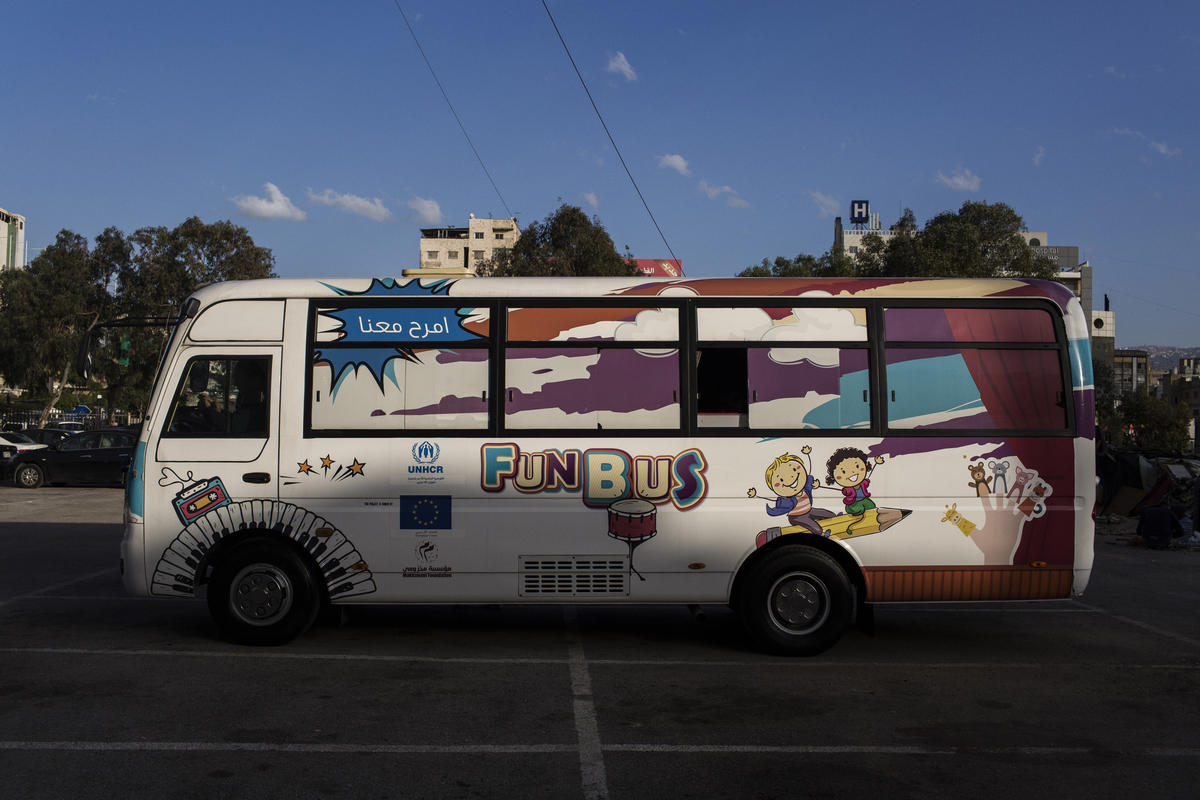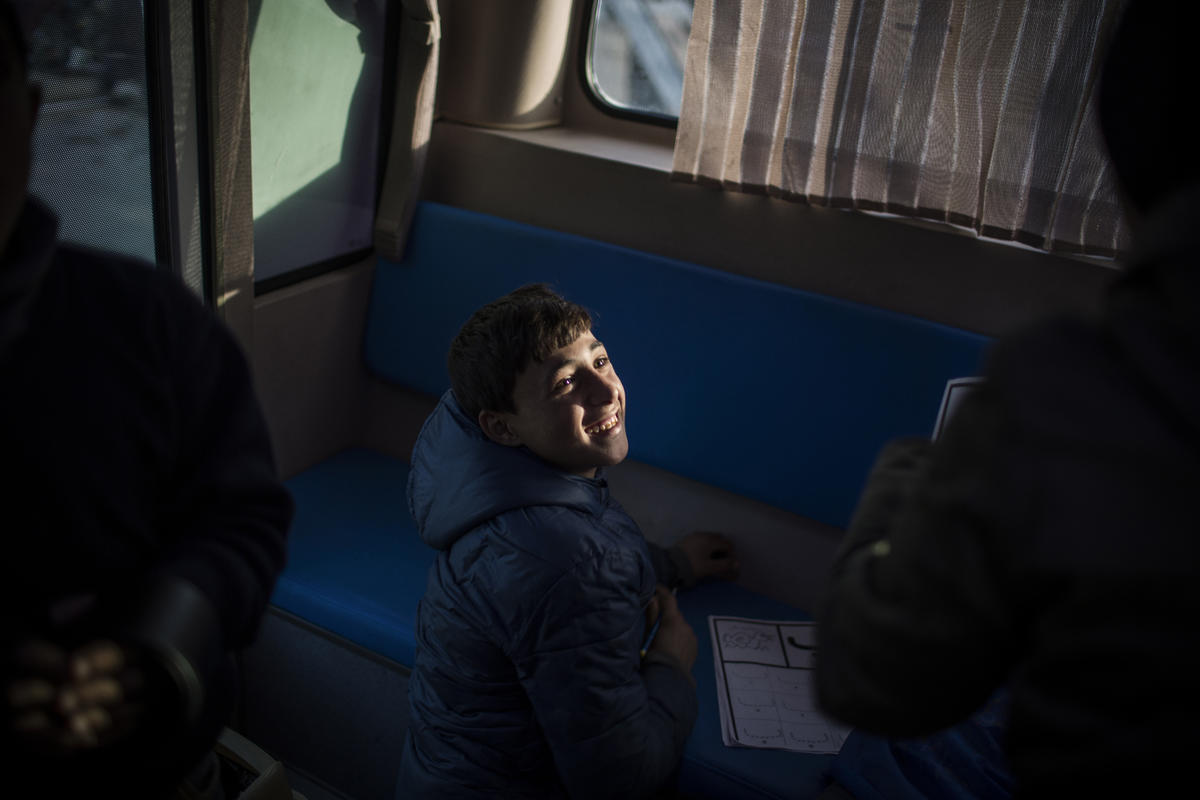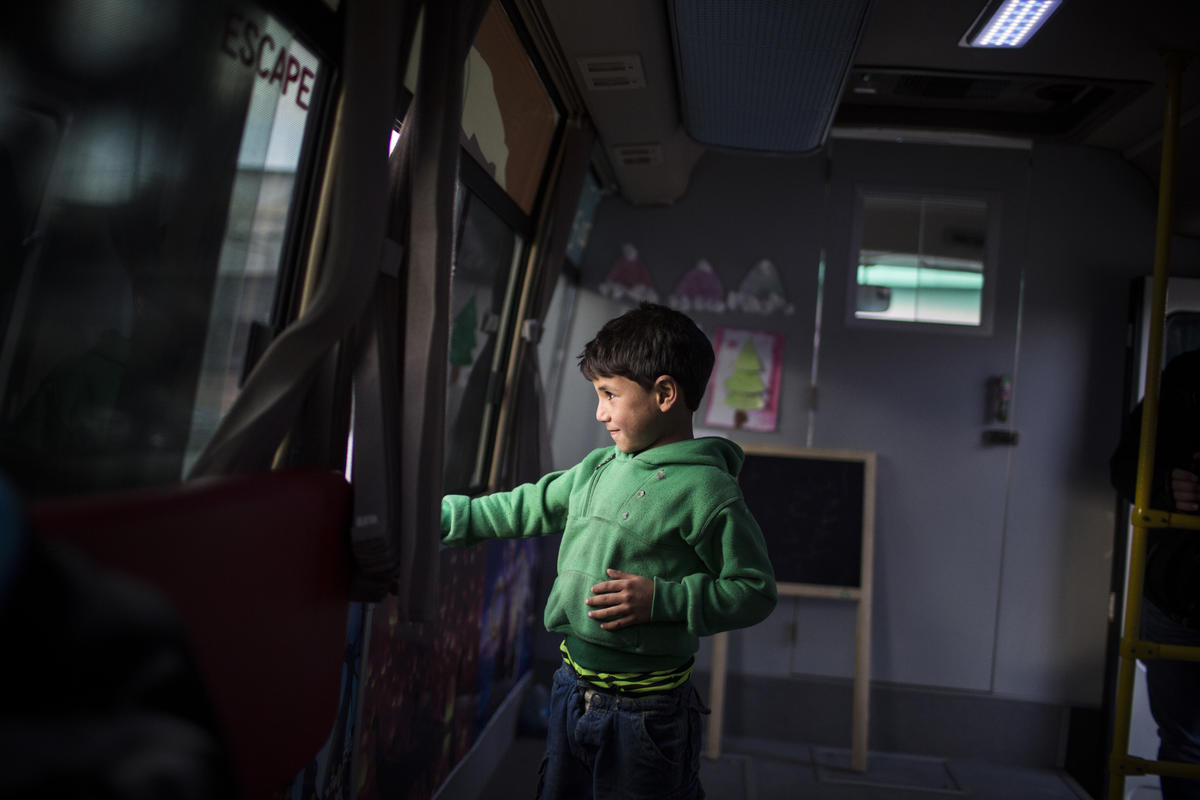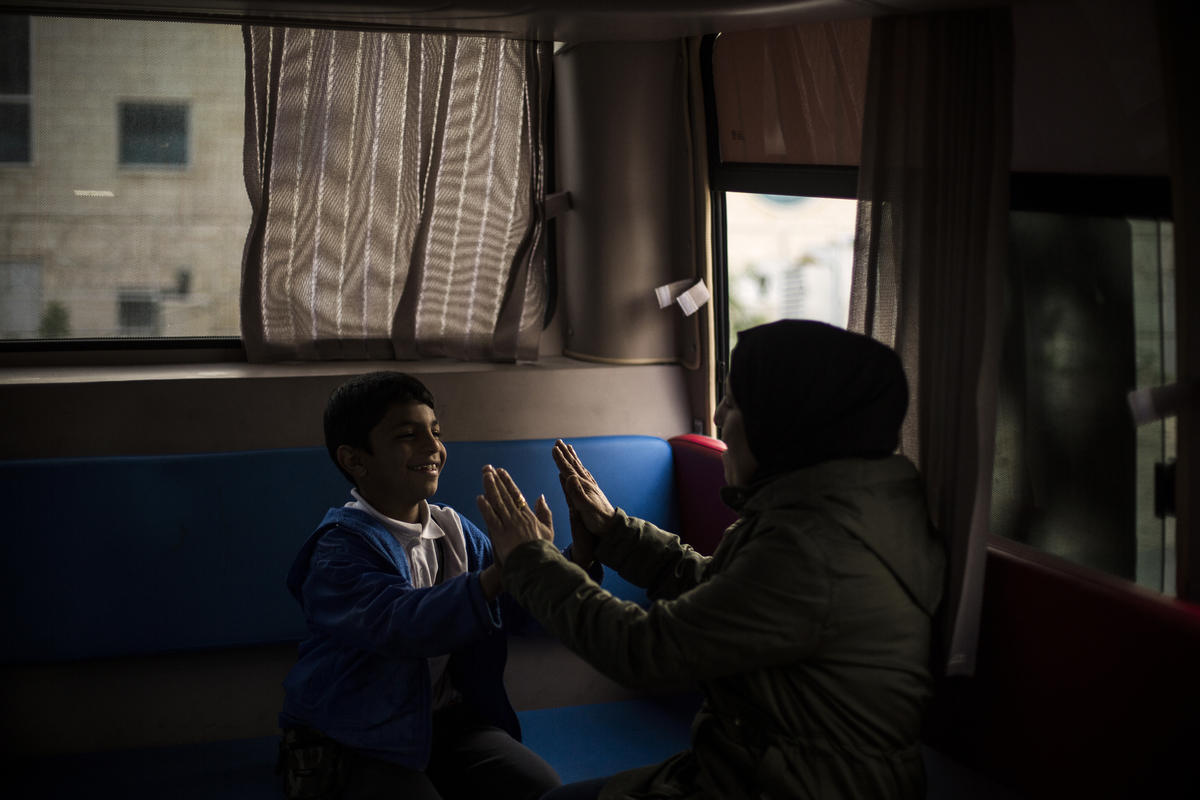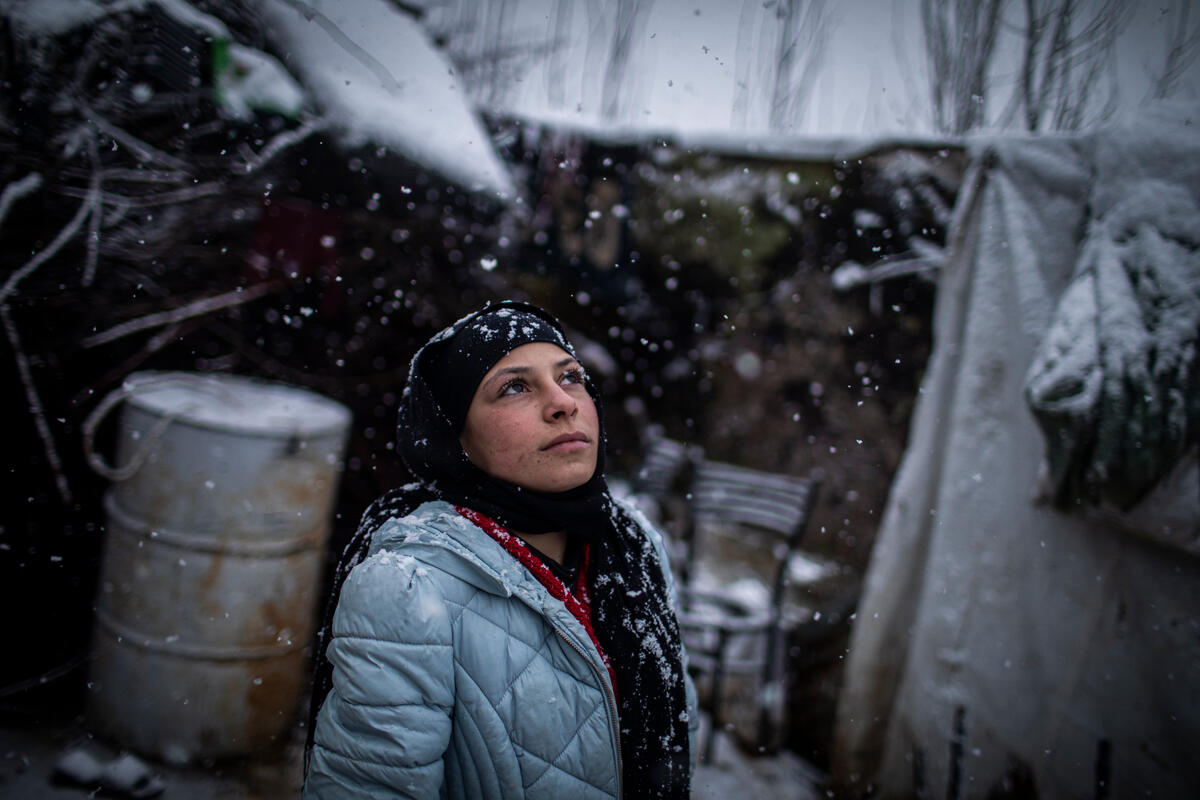Lebanon's 'Fun Bus' offers kids a respite from street work
On a recent afternoon in a drab neighborhood in the west of Lebanon’s capital, Beirut, a brightly coloured bus pulls up to the side of a street. A group of children selling chewing gum and tissues to drivers at a busy intersection quickly pack away their wares and gather at the roadside, eagerly waiting to hop on board.
“They call to us here, they tell us to come and play,” says Abed, a 12-year-old refugee from Syria. “We love coming here.” For a few hours, Abed and his friends get the chance to be normal children again, playing and learning away from the dangers of the streets.
The 'Fun Bus' initiative is jointly funded by UNHCR, the UN Refugee Agency, and the European Union, and implemented by the Makhzoumi Foundation, a Lebanese NGO. It provides support and recreation to street children in Lebanon, thereby reducing the amount of time they spend working outside.
“We roam around Beirut, in all of its neighbourhoods. We do psycho-social support activities, basic literacy and numeracy classes and handcrafts,” explains Nadine Moussa from the Makhzoumi Foundation.
"I don't like being on the street."
The project, launched in 2018, has already reached hundreds of children working in Beirut, most of whom are from among the nearly 950,000 registered Syrian refugees currently living in the country. The youngsters are forced to work to help support their impoverished families, depriving them of the chance of a normal childhood and an education.
“I don’t like being on the street,” says Alaa, a 14-year-old boy originally from Aleppo in Syria. “I get assaulted, I don’t feel safe. But here, I play, draw and learn.”
On the “Fun Bus”, Alaa is learning the alphabet, which makes a welcome change from selling bottled water for around US$10 a day. “The children have a safe space to express themselves,” says Moussa. “Here, they are respected and appreciated. They get to live their childhood, even if for just a few hours.”
The children, who are regularly exposed to violence on the streets, can sometimes be aggressive themselves. The “Fun Bus” volunteers often spend time mediating between children who fight and bicker but ultimately settle for a lesson or a fun game.
The initiative also offers awareness sessions to the children on the dangers they face on the streets, making them better equipped to protect themselves. Abed, for instance, was injured after a car ran over his feet. As a result, he is currently off the streets and eagerly looks forward to his time on the bus each week.
The “Fun Bus” initiative is part of a wider programme by UNHCR and its partners that aims to “eventually stop children from working on the streets altogether,” explains Sirine Comati from UNHCR.
The ambitious programme seeks to engage with the families of working children and encourage them to get their kids off the streets. Parents receive vocational training to help them find job opportunities, ensuring they are no longer reliant on the money their children bring in.
Where possible, the children themselves are enrolled in schools. Many have either never attended classes or have missed out on years of their education.
"I wish I could go back to school."
“We are raising awareness about the dangers and empowering parents to believe in the idea that if they take their children off the streets, they are able to give them a better life,” adds Comati.
Through this approach, the overall programme has so far successfully taken 150 children off the streets in the past two years, but many challenges remain. More than two thirds of Syrian refugees in Lebanon live below the poverty line, with limited access to employment, often leaving them with no other option than to send their children out to work to make ends meet.
Alaa had just completed 4th grade when his father passed away last year. He dropped out of school and went to join the other kids working on the roadside. “I had to work to support my mother and siblings. I wish I could go back to school, but now I have no choice,” he says.
After finishing his alphabet lesson for the day, Alaa grabs his water bottles and heads back out to the intersection, saying as he goes: “I can’t wait to be back on the bus next week.”


